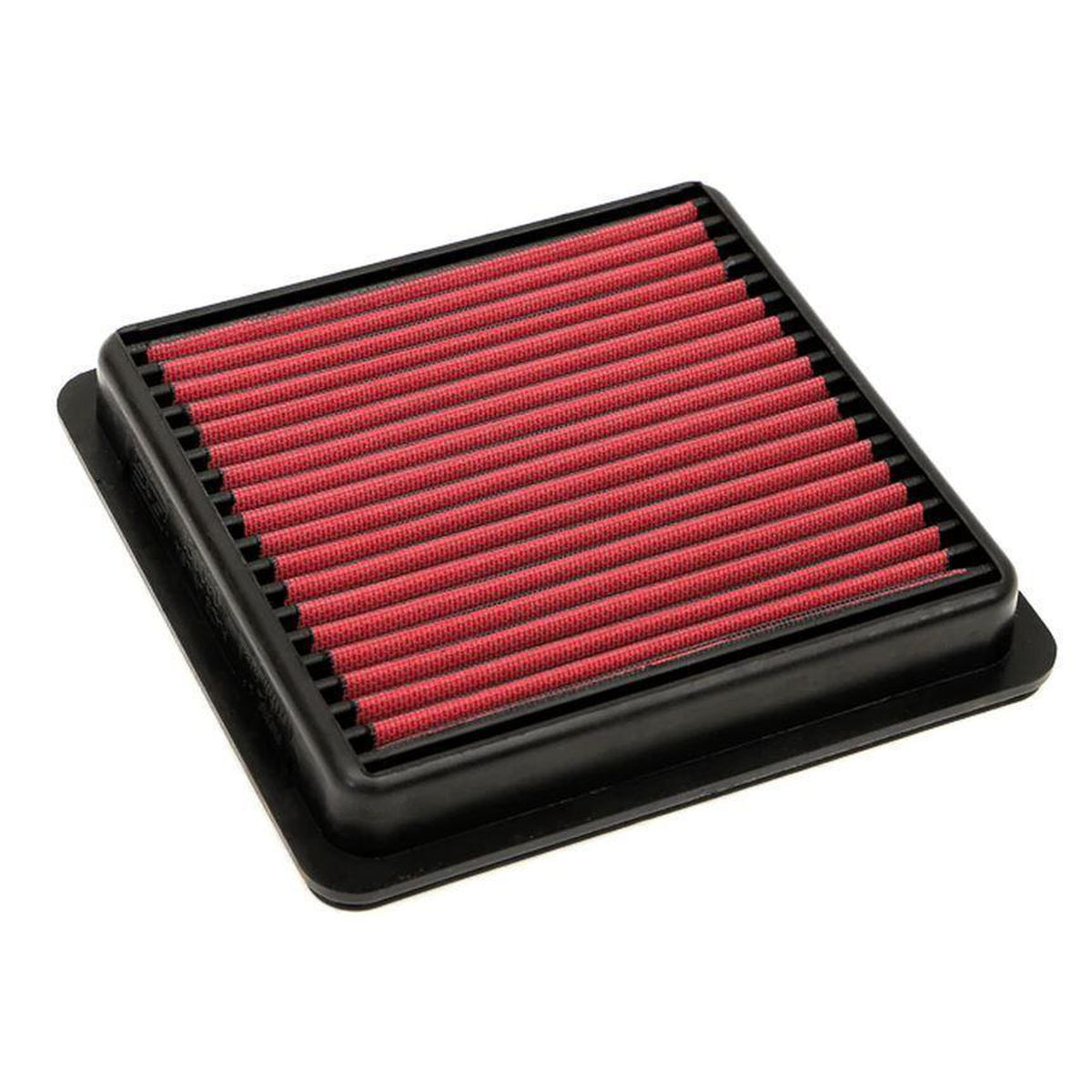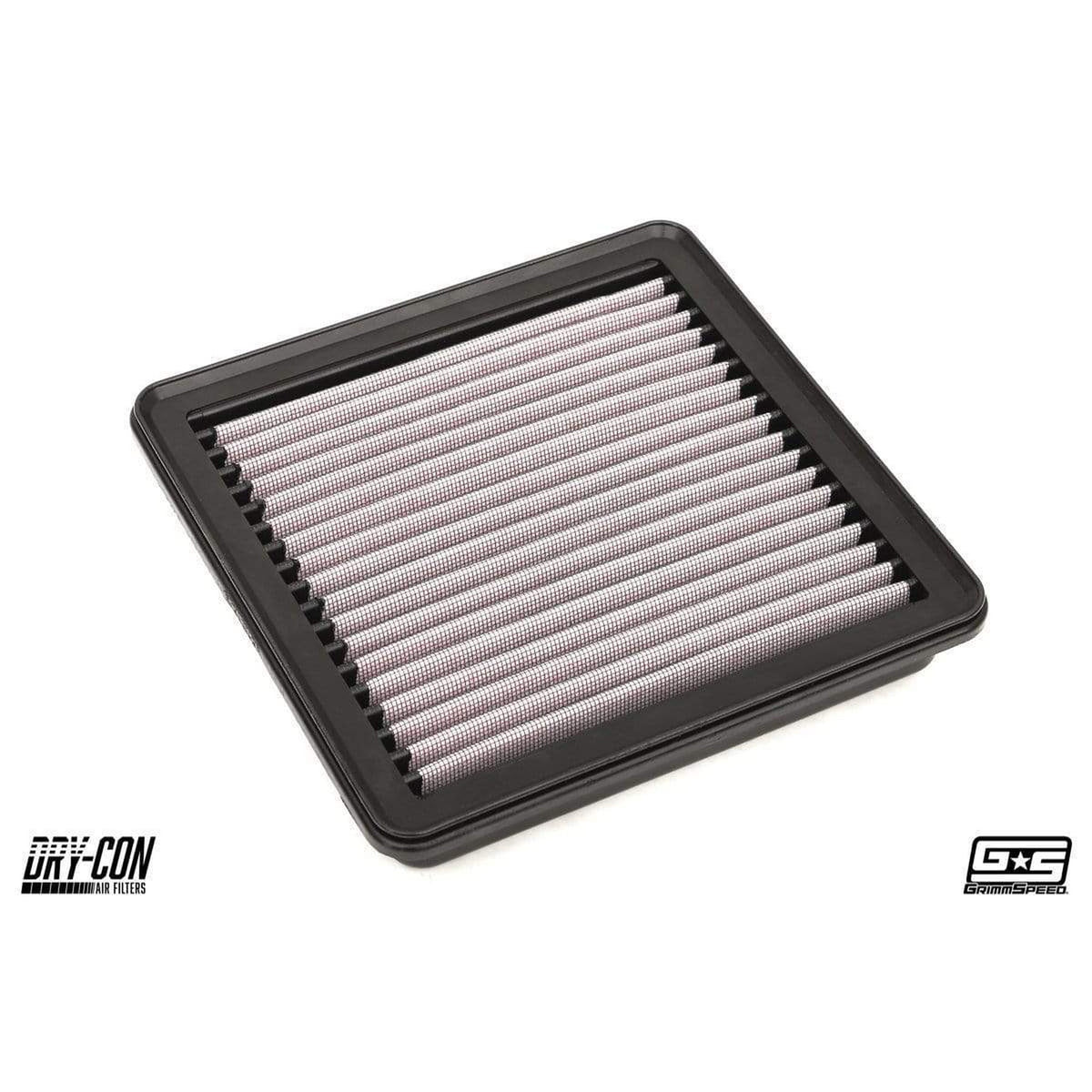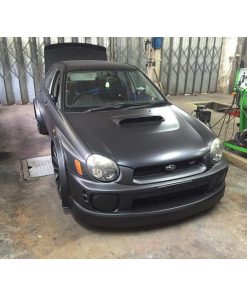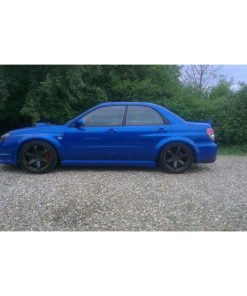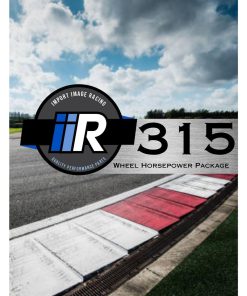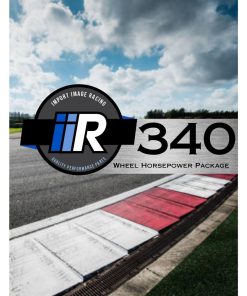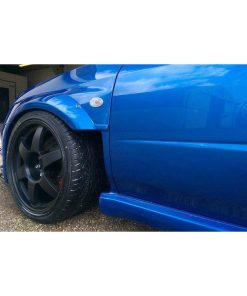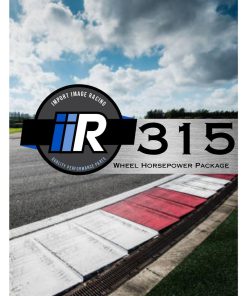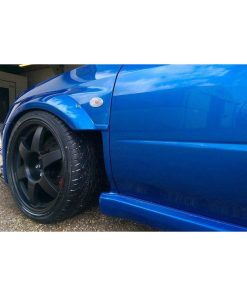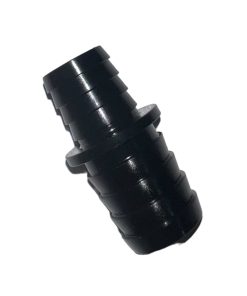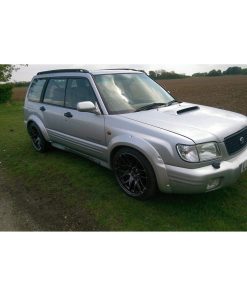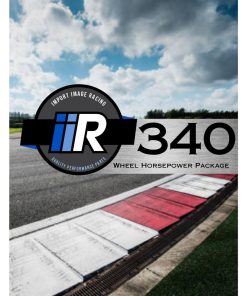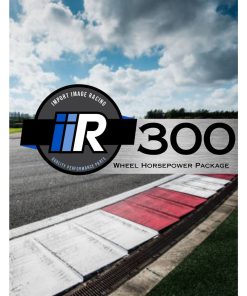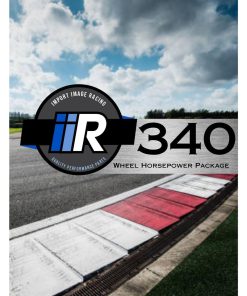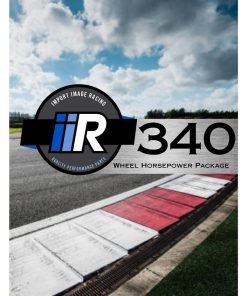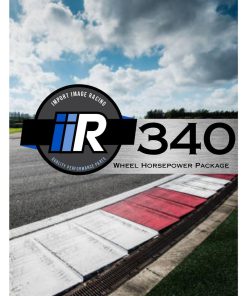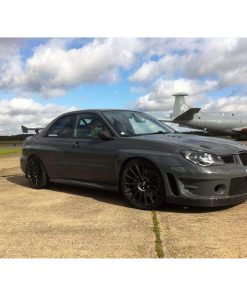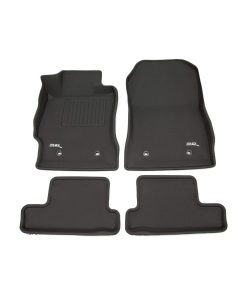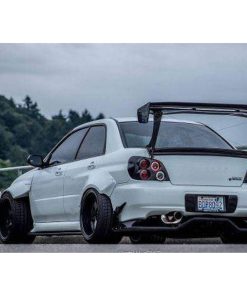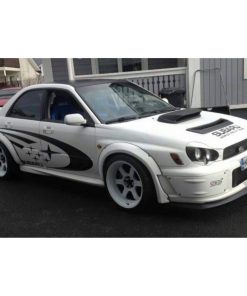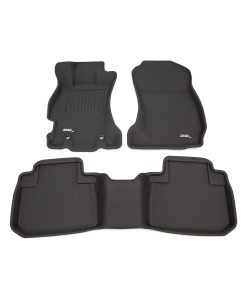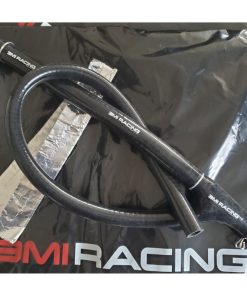Grimmspeed Dry-Con Performance Panel Air Filter Subaru WRX 2008-2021 / STI 2008-2018 / Forester 2009-2013 / Legacy/Outback 2005-2017 | 060091 GrimmSpeed
$ 59,00 $ 29,50
GrimmSpeed know’s that not everyone is ready for one of their full aftermarket intake systems, but still wants a safe and easy way to increase power with no tuning required. They’ve worked hard to develop a direct replacement, dry-element air filter for the stock airbox that not only decreases restriction, producing more torque and horsepower, but is also able to filter out particulates at the same level as the OEM filter to keep your engine safe.
Fitment:
- Subaru WRX 2008-2021
- STI 2008-2018
- Forester 2009-2018
- Legacy/Outback 2005-2017
QUICK SPECS:
- Direct OE Replacement – Drops right into the OEM airbox for an easy install
- Oil-Free Element – Dry-Con means more reliability and easier maintenance
- Proven Performance: Designed in the Lab, Proven on the Dyno
- Tested +9 TQ and +6 WHP – Safe, reliable power gains
- 62% Better Flow than OEM – More flow/less restriction, equals more power
- 99.1% Efficiency – Filters at the same level as OEM
- Long Service Life – Up to 20K mile service interval
- Serviceable/Reusable – Simple refresh using popular cleaning kits
- No Tune Required – Simply drop in and enjoy more safe, reliable power!
- 1 Year Warranty – Worry free, heavy-duty construction
- 100% Made in the USA

WHY CHOOSE GRIMMSPEED?
Filter design is a delicate balancing act, the overall goal of creating a good air filter is to find the ideal combination of flow, filtration efficiency and holding capacity. There IS a difference between simply making a unit that fits in a factory intake box and engineering a performance air filter.
Some air filters are constructed with a cotton or synthetic media combined with an oil to increase filtering ability. This can increase flow, however it also means more difficult filter maintenance because of the need to properly re-oil the filter. We decided to use a dry-construction media, utilizing two different layers of synthetic material with varied filtering and flow abilities, resulting in very similar flow capability to the oiled media while maintaining the same filtering efficiency. Since other important variables in air filter design including the pleat pitch, count and depth can make or break the performance of a filter, extensive testing was required.
TESTING
We contracted a 3rd party OEM Test Lab using SAE-5011 OEM Air Filter Standards for our initial filter designs. All of these were the same size and fitment, but used varied filter media including pleat pitch, count, depth, material and construction.
The first data set explores pressure drop across the filter before and after saturation since it directly relates to the performance potential of the filter. Chart 1 shows that the pressure drop of all clean and dirty filters was very similar, identifying the filtering ability of each panel. The next data set focuses on the filtration ability in each filter; Chart 2 illustrates that filters A and B allowed far too much of the test dust to flow through, with filter C being the optimal candidate for additional performance-based testing. We took the general construction of this unit and modified it into 3 different pleat variations.

Since ultimate performance of an air filter is based on its flow ability, we wanted to see how different pleat packs would compare to the OEM filter in terms of CFM through the filter as well as dust capacity. Chart 3 illustrates that as flow increases, capacity decreases. We see that the performance of the filters has substantially increased over the OEM unit, at the slight cost of reduction in dust capacity. Arguably the most important criteria of the filter is its ability to resist the flow of contaminants. The OEM filter was found to filter at 99.7%, with all three of our test filters scoring almost identically with 99.2% or above as illustrated in chart 4. All of these filters would be exceptional choices.


After this very comprehensive testing, we were able to select a design that meets the GrimmSpeed standard and best balanced the ultimate flow potential with the dust holding capacity as illustrated in Chart 5. This filter maintains the same efficiency as OEM, but has an increase in CFM by 62%. The reduction in dust holding capacity is an acceptable middle ground between the filter choices and will still retain a lengthy maintenance interval.

DYNO TESTING

In order to properly evaluate the performance gains of The GrimmSpeed Dry-Con Air Filters, we did four wide open throttle pulls with the OEM air filter, then four more with our unit on a 2021 factory-tuned STI test car. The outlier run was thrown out and results were averaged as shown in Chart 6. We can see a solid 9 ft/lbs of torque difference and a consistent 6 whp gain from 5400rpm until redline with the GrimmSpeed filters. There is reduction in restriction in the top end that shows well here and has a direct relation to the performance of the air filter.


CONCLUSION
The GrimmSpeed Dry-Con Air Filter flows an amazing 62% better than OEM, features a 99.2% efficiency and is easy to service without the added hassle of proper re-oiling. Through testing, we saw an increase of 9 ft/lbs of torque and 6 whp at the top end of the RPM range with no engine tuning involved.
Prompt Delivery and Professional Packaging
Thanks to our longstanding association with UPS FedEx DHL, and other leading international carriers, we are able to provide various shipping options. Our warehouse personnel are well trained and will be able to pack your goods in accordance with the exact and precise specifications. Your goods will undergo an exhaustive examination before they will be properly packaged prior to being shipped. We deliver to thousands of customers every day from all over the world. The fact that we are dedicated to becoming the largest online retailer in the World is clear. These warehouses are situated in Europe just as they are in the USA.
Note: Orders that contain more than one product are assigned a specific processing time depending on the specific product.
We will inspect each and every one of the items ordered before shipping. Most orders are delivered within 48 hours. The delivery time will be between 3-7 working days.
Returns
Stock is dynamic, and not fully managed by us due to the involvement of multiple different parties, such as the factory and our warehouse. Actual stock levels may fluctuate at any time. Be aware that your order may be out of stock once the order is placed.
Our policy is valid for 30 days. We cannot exchange or refund your order if it has been 30 days from the date of purchase.
The item must not be used and in its original condition. It must also be returned in its original packaging.
Related products
Interior Floor Mats
Exterior Body Kit
ABW Motorsport Fender Flares + Skirts + Lip Kit Subaru WRX / STI 2002-2007 Sedan ABW Motorsport
Exterior Fenders
Engine Power Packages
Exterior Fenders
ABW Motorsport 60mm Fender Flares Recessed Two Piece Subaru WRX / STI Sedan 2004-2005 ABW Motorsport
Engine Power Packages
Exterior Body Kit
ABW Motorsport 4 Door to 2 Door Conversion Kit Subaru WRX / STI 2002-2007 ABW Motorsport
Exterior Fenders
ABW Motorsport 60mm Fender Flares Recessed One Piece Subaru WRX / STI 2006-2007 Sedan ABW Motorsport
Motor Vehicle Interior Fittings
3MI Racing 3/4″ Barbed End to 5/8″ Barbed End Hose Adapter 3MI Racing
Engine Power Packages
300WHP Power Pack 2022-2024 Subaru WRX 6MT/CVT (USDM Only) Import Image Racing
Interior Floor Mats
3D MAXpider Subaru WRX / STI 2015-2021 Kagu Black Cross Fold Cargo Liner 3D Maxpider
Exterior Fenders
Exterior Front Lips
ABW Motorsport Front Lip Subaru WRX / STI 2006-2007 ABW Motorsport
Exterior Fenders
ABW Motorsport 60mm Fender Flares Recessed One Piece Subaru WRX Sedan 2002-2003 ABW Motorsport
Exterior Body Kit
ABW Motorsport 4 Door to 2 Door Conversion Rear Quarters Subaru WRX / STI 2002-2007 ABW Motorsport
Exterior Fenders
ABW Motorsport 40mm Fender Flares Two Piece Subaru WRX / STI 2006-2007 Sedan ABW Motorsport
Interior Floor Mats
3D Maxpider Heavy Duty All Weather Floor Mats Subaru BRZ 2013-2020 3D MAXpider
Exterior Fenders
ABW Motorsport 40mm Fender Flares Recessed Two Piece Subaru WRX / STI 2006-2007 Sedan ABW Motorsport
Exterior Fenders
ABW Motorsport 80mm Recessed Arch Fender Flares Subaru WRX / STI 2002-2005 Sedan ABW Motorsport
Exterior Fenders
ABW Motorsport 40mm Fender Flares Arch Bolt-On One Piece Subaru WRX 2002-2003 Sedan ABW Motorsport
Interior Floor Mats
3D Maxpider Heavy Duty All Weather Floor Mats Subaru Forester 2014-2018 3D MAXpider
Engine Hose Kits
3MI Racing AOS to EJ Turbo Drain Hose Kit Subaru WRX 2002-2014 / STI 2004-2021 3MI Racing
Exhaust Axle Back
Exterior Fenders
ABW Motorsport 40mm Fender Flares Recessed Two Piece Subaru WRX 2002-2003 Sedan ABW Motorsport
Exterior Fenders
ABW Motorsport 60mm Fender Flares Arch One Piece Subaru WRX / STI 2004-2005 Sedan ABW Motorsport
